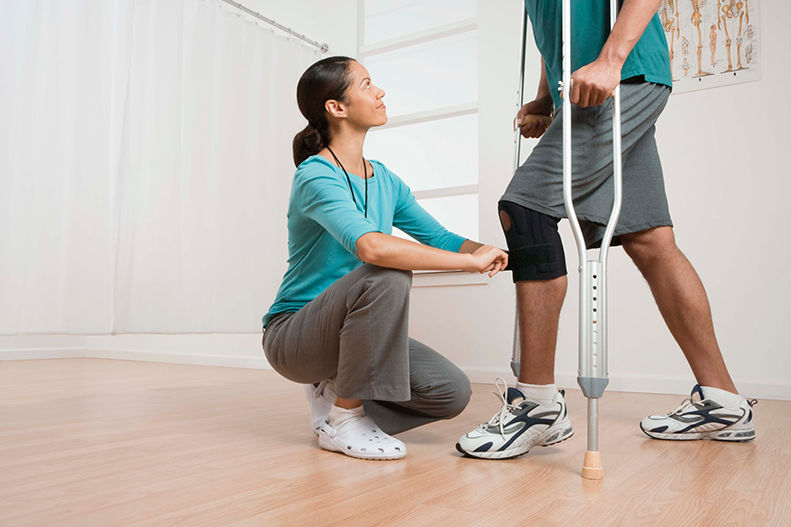Minimally invasive knee and hip replacement surgery can lead to less pain and a faster recovery – which can mean you’ll get moving again soon after surgery.
“We’re ahead of the curve,” says Mark Gardner, DO, a board-certified orthopaedic surgeon with Horizon Orthopedics–UPMC. “This is not your standard hip and knee replacement.”
Dr. Gardner says new techniques allow surgeons to use the same hip or knee implants used in traditional surgery. However, the incisions made in the hip or knee are much smaller. This typically results in less muscle damage, less scarring, and a quicker return to your regular activities.
“It’s very beneficial for patients,” he adds. “They can have less discomfort, get back to work faster, and it’s cosmetically more appealing.”
Orthopaedic surgeons also use minimally invasive surgery to treat complex shoulder injuries, including muscle tears and arthritis.
Never Miss a Beat!
Subscribe to Our HealthBeat Newsletter!
Thank you for subscribing!
You can now select the specific newsletters you'd like to receive.
You are already subscribed.
Subscribe to more newsletters in our email preference center.
Sorry, an error occurred. Please try again later.
Get Healthy Tips Sent to Your Phone!
Physical Therapy after a Knee or Hip Replacement
Dr. Gardner says physical therapy is very important after shoulder or joint replacement surgery, even if you have minimally invasive surgery.
Orthopaedic surgeons work closely with physical therapists, athletic trainers, and primary care physicians to coordinate your care after surgery. UPMC’s network of physical therapy and rehabilitation programs, including UPMC Center for Rehab Services, offer convenient access no matter where you live.
“We know the local therapists and talk to them every day. That continuum of care is highly beneficial for patients,” says Dr. Gardner. “Patients are more likely to complete the therapy they need when it’s close to home. Happier patients are more-compliant patients”
If you are considering hip or knee replacement surgery, visit our website to learn more about orthopaedic surgery services or to find an orthopaedic surgeon near you.
About UPMC Orthopaedic Care
When you are dealing with bone, muscle, or joint pain, it can affect your daily life. UPMC Orthopaedic Care can help. As a national leader in advanced orthopaedic care, we diagnose and treat a full range of musculoskeletal disorders, from the acute and chronic to the common and complex. We provide access to UPMC’s vast network of support services for both surgical and nonsurgical treatments and a full continuum of care. Our multidisciplinary team of experts will work with you to develop the treatment plan that works best for you. Our care team uses the most innovative tools and techniques to provide better outcomes. We also are leaders in research and clinical trials, striving to find better ways to provide our patients care. With locations throughout our communities, you can find a provider near you.
